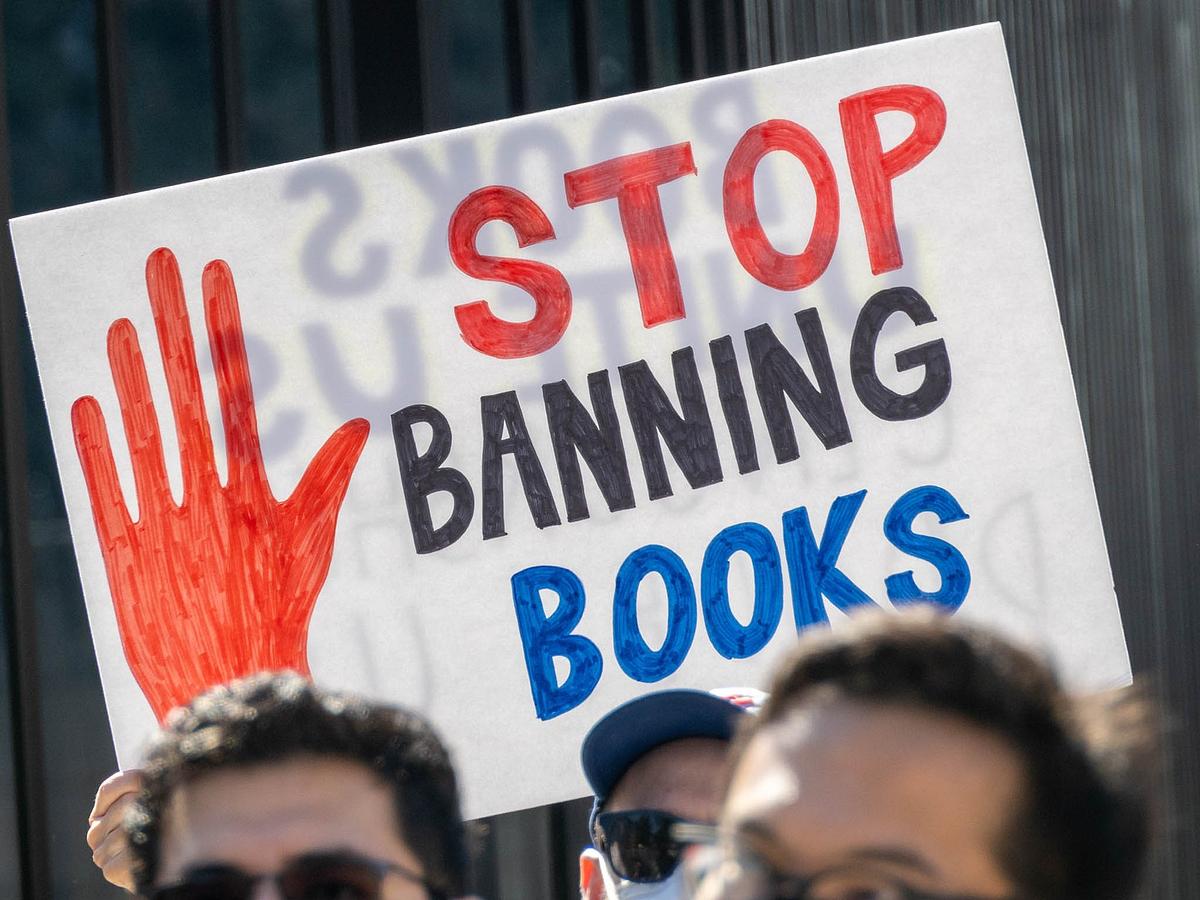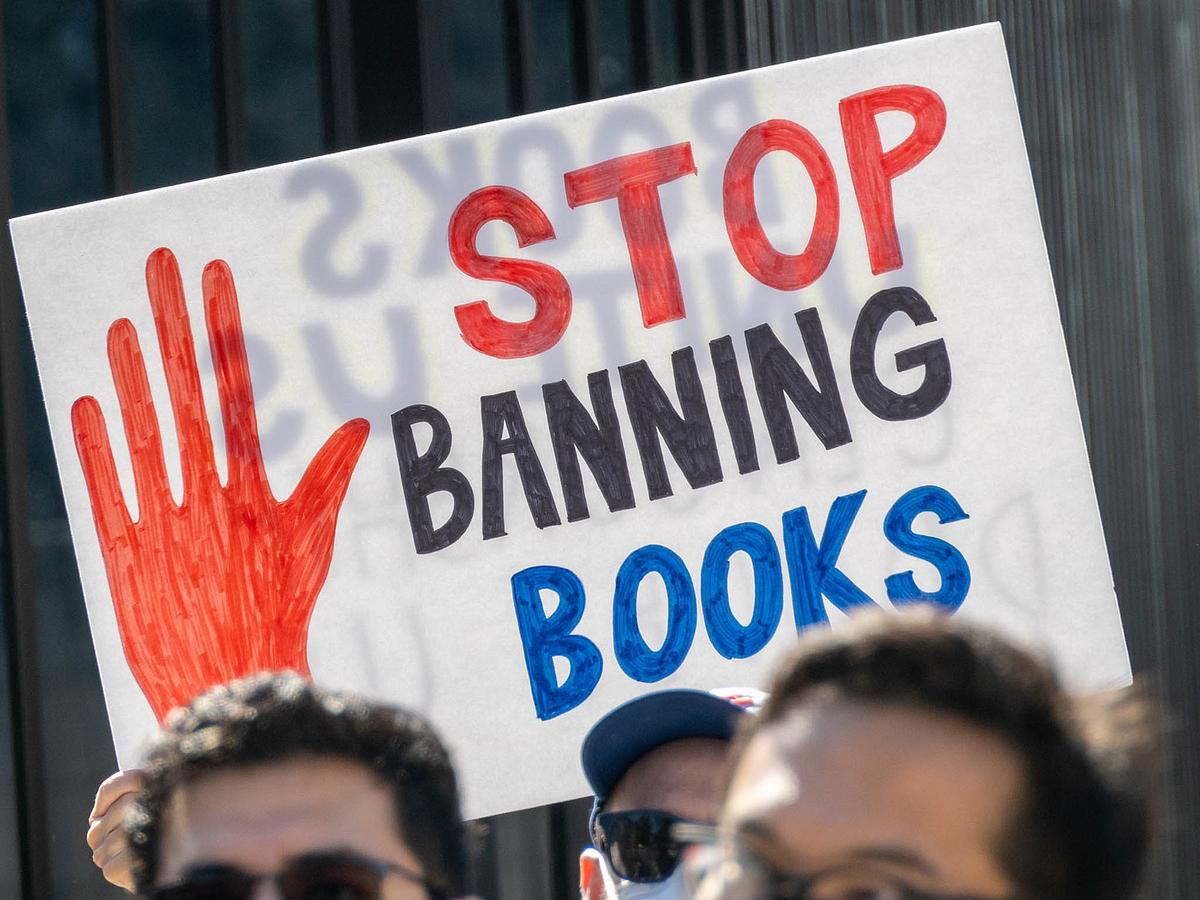Censorship is so 1984: Banned Books Week defies rise in book censorship across U.S.
Sat. October 4, 2025 7:19 PM by Gerald Farinas

protesters demand a stop to book bans in atlanta, ga.
Chicago libraries are putting banned books front and center in special exhibits
Across the United States, book bans have increased faster than at any time in modern history. In the 2023–24 school year, PEN America recorded more than 10,000 cases of books being banned or restricted in public schools. Those bans affected over 4,000 different titles. About 39 percent of those books included LGBTQ characters or themes. The American Library Association also reported 821 attempts to remove books from schools and libraries in 2024, covering 2,452 unique titles. Nearly three out of four of these attempts came from organized political or activist groups rather than individual parents. Most of the books that are targeted explore race, sexuality, gender identity, or social justice.
Several LGBTQ books have become symbols of this fight. Mike Curato’s Flamer, a graphic novel about a gay teenager, was removed from some school libraries because of its honest story about identity and bullying. Maia Kobabe’s Gender Queer: A Memoir has been one of the most banned books in America. Critics claim it is too explicit, but many readers say it helped them understand gender identity and acceptance. George M. Johnson’s All Boys Aren’t Blue, which tells the story of growing up Black and queer, has been challenged across the country for its open talk about sexuality. Susan Kuklin’s Beyond Magenta, a book that shares real stories of transgender teens, has been pulled from some libraries because it discusses gender and transition.
In Chicago, libraries are responding by celebrating these books instead of hiding them. The Chicago Public Library system has created “Book Sanctuaries,” where every branch highlights and protects books that have been banned or challenged elsewhere. During Banned Books Week, branches across the city will feature special displays and programs that celebrate diverse voices and freedom of expression. At the Harold Washington Library, the Altar for the Unbanned honors authors whose stories have been silenced. Woodson Regional Library is giving away free copies of challenged books through the “Banned Wagon” project, and the Vivian G. Harsh Collection is hosting an exhibit that connects Chicago’s literary history with the national struggle for the right to read.
For LGBTQ people, this issue is personal. Seeing yourself represented in books can make all the difference, especially for young readers who may not feel accepted anywhere else. When those stories are removed, it sends the message that their lives and experiences do not belong. Censorship doesn’t just remove books; it removes hope, visibility, and connection.
Banned Books Week reminds everyone that the right to read must be protected. Chicago’s libraries are showing that standing up for books can be a joyful act of community pride. By checking out a banned book or sharing one with a friend, readers are making a quiet but powerful stand for inclusion and freedom. Censorship may try to silence voices, but stories—especially queer stories—will always find a way to be heard.






